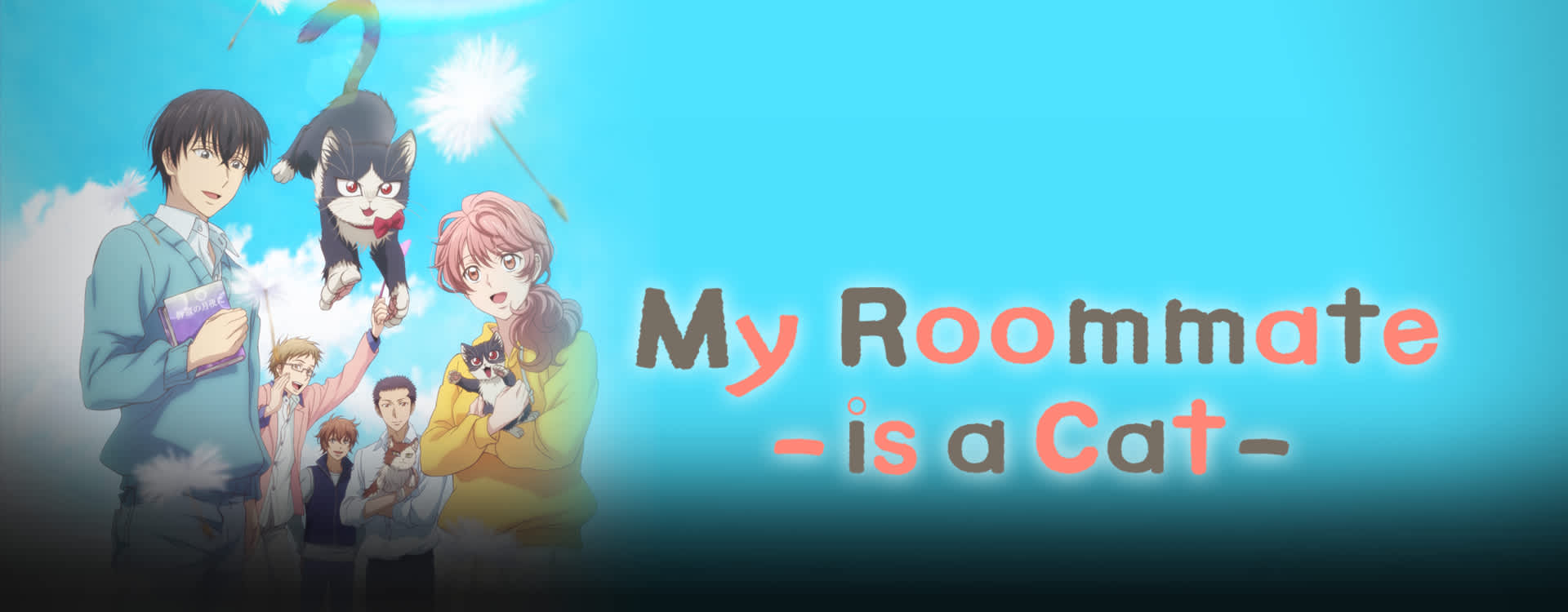English Dub Season Review: My Roommate Is a Cat Season One
Watching this one is like bringing home a new friend
Overview (Spoilers Below)
Subaru Mikazuki is a reclusive novelist in his mid-twenties who has avoided contact with the outside world at all costs since the death of his parents. The tragedy has turned an already introverted Subaru into something bordering on an agoraphobe. His editor, Kawasei, does all he can to get the author out of the house, and Subaru’s neighbor Yasata checks in on him whenever he can, but Subaru remains determined to hide from life no matter what anyone does for him.
After a meeting with his editor, Subaru visits his family’s gravesite and finds a stray cat. He takes her in, initially because she gives him an idea for a new story, and names her Haru. On their first day together, Subaru passes out from a lack of food, and Haru saves him by making sure he does eat. Thus, their bond is formed, and Subaru adopts Haru to live with him in his house. The two pledge to take care of each other, and as their bond strengthens, Subaru finds himself more and more able to interact with the outside world. In addition to becoming closer to Kawasei and Yasata, Subaru also meets Nana—a worker at the pet store near his house—and her brother—a huge fan of Subaru’s writing.
Haru, too, learns more about herself as she spends time with Subaru. She began her life as a stray cat in a litter full of kittens. She, as the oldest, became responsible for her siblings and took up the ways of a stray from an older, more grizzled cat she met on her travels. Eventually, two of her siblings are adopted by a nice family, but one is lost to her. The pair eventually reunite at Nana’s house, as she adopted Haru’s brother. With her brother squared away, Haru finds herself finally able to focus on her new family, Subaru.
After some professional success with his book inspired by Haru, Subaru needs inspiration for his next story. He decides to take a trip to somewhere his parents wanted to go before they died to inspire him. He has a great time, but he finds himself missing Haru. He tries to make his way home, but his flight is canceled due to a massive storm. Haru, worried, escapes the house to go look for Subaru. Subaru is forced to fight his fear of strangers and rely on his friends when he goes looking for Haru, and he eventually finds her and brings her home. Subaru and Haru are both able to realize how far they’ve come and how much they owe to each other.
Our Take
I watch a lot of television, and through all of those hours in front of a screen, I feel like I’ve become a touch cynical. By watching an endless number of pilots, filler episodes, and season finales, I sometimes worry that I’ve become jaded to what the medium has to offer. Has the weight of innumerable Campbellian monomyths finally crushed me into a fine, joyless powder? I’m so glad to say that, no, it has not. When a show does something right, I am still able to delight in it the same way that I did when I was first exposed to that glowing box I’ve dedicated my life to.
My Roommate is A Cat does a lot right. The show uses an extremely deft hand to get the most out of its limited cast and low-stakes plotting. It’s a master class in minimalism. A show like this doesn’t need twists and turns, it took its time crafting characters that an audience would care for and gently challenges them each week to spectacular results. Watching Subaru Mikazuki come out of his shell is one of the best journeys I’ve watched in a season of television in years, and I have taken to recommending the show to anyone who will listen to me.
There’s a beautiful tenderness in the beating heart of this show that can only be carried off with careful consideration. My Roommate is A Cat walks a tightrope every week that threatens to plunge it into the depths of saccharine fluff, but it makes it across every week with grace and aplomb. It’s difficult to create a show that a) has a world that is mostly kind, b) is not made explicitly for children, and c) carries the whole thing off with subtlety, but they manage to make it look so easy. The show is always pleasant, but the moments of catharsis are truly gorgeous. Episode nine, in particular, has an unbelievably emotional character beat that justifies watching the show simply for that moment.
The show has a few small issues, but considering the six hours of television as a whole reduces them to minor quibbles. The show’s tone can get in its way on occasion. It occasionally leans too hard on the tragedy that precedes the series to make up for a lack of menace in the show’s present. Similarly, it’s hard for the show to generate plot-based stakes, so the finale strains credulity at times. Additionally, the show often goes into the minds of their animal characters for plot as well as comedy, and besides Haru, who gets most of this attention, the other non-human characters can come across a little thin.
That said, there is not a person that I wouldn’t recommend this show to. The show is wildly instructive for anyone who is interested in making television (the limited moving parts allow a close reading of the show along any particular axis); it is a beautiful illustration of a path to moving on after grief; it’s also a great way to show the use of the typical anime art style can still accommodate a wide variety of stories. It’s exceedingly rare that a show with sensibilities like this is not consumed by them, and even rarer that something with a heart this pure can be a truly transcendent piece of media. Don’t let this one pass you by.
























Hi Ashley, thank you so much for reading and we love the feedback. Note that on that day we had 14th posts go up and only ten posts show on the front page, so it's possible the preview had already been archived by the time you got to it. One recommendation would be to add our RSS feed to your favorite news aggregator service like Feedly, this way you get all of the latest posts!